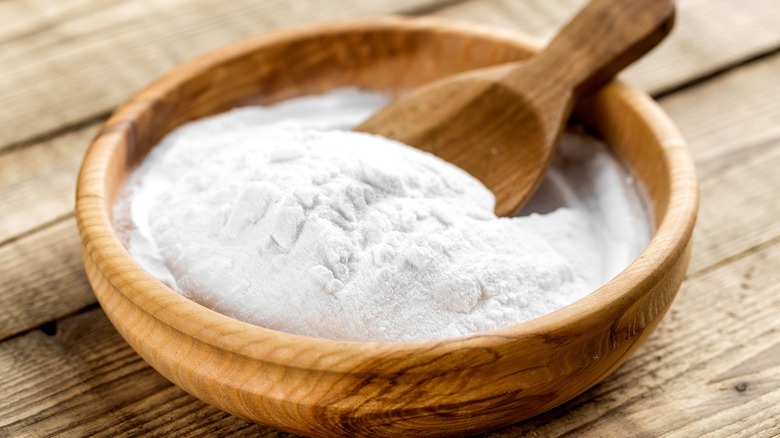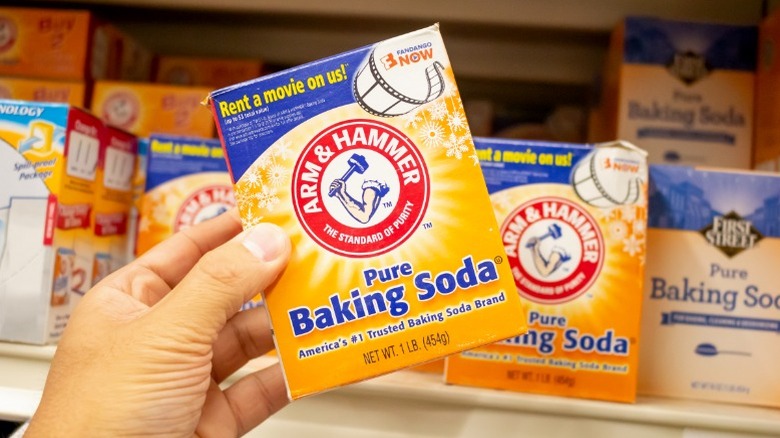What's The Difference Between Baking Soda And Baking Powder?
We may receive a commission on purchases made from links.
Baking soda and baking powder look and feel nearly identical — white, soft, and powdery. They're both chemical leavening agents that help dough and batter because of their anti-caking chemical: sodium bicarbonate. When this base interacts with an acid, it releases carbon dioxide, the chemical responsible for fluffing up baked goods. This reaction is why you can test the freshness of baking soda and baking powder by dropping a spoonful into water or vinegar. Fizzing in the water means that the sodium bicarbonate is still releasing carbon dioxide — a.k.a., doing its job!
Baking soda and baking powder are essential in the kitchen but are not interchangeable. Baking soda is pure sodium bicarbonate, and baking powder is sodium bicarbonate mixed with an acid. To break it down further, baking soda is its own thing, and baking powder is baking soda with another ingredient. Most of the time, the extra ingredient in baking powder is potassium bitartrate, otherwise known as cream of tartar. A filler like corn starch will often be thrown into the mix to extend the shelf life.
When to use baking soda versus baking powder
Baking soda is a base, meaning you'll have to manually add in an acid for it to react. Acids have hydrogen ions and a pH lower than seven. Finding them is easier than you think. Hundreds of recipes call for citrus, vinegar, buttermilk, coffee, and other ingredients with acids. Baking soda is ideal for marinating chicken or adding to recipes with a lot of acidity.
Baking powder shines when the ingredients have higher pH values because it already has an acid. Too much acidity might throw off the taste and texture of your baked goods. Cake recipes rely on baking powder as a main ingredient because they have more basic/alkaline or neutral ingredients, such as eggs, milk, sugar, and vegetable oil.
Baking is all about producing the right amount of leavening, which is why many recipes will use baking soda and baking powder together for a specific consistency. To convert baking soda into baking powder, combine one part baking soda with two parts of an acidic ingredient. To substitute baking powder for soda, you'll want to use three parts baking powder for one part baking soda. Keep in mind that recipes specify the where and when of baking soda and powder for a reason, but there's no harm in experimenting with them for yourself.

